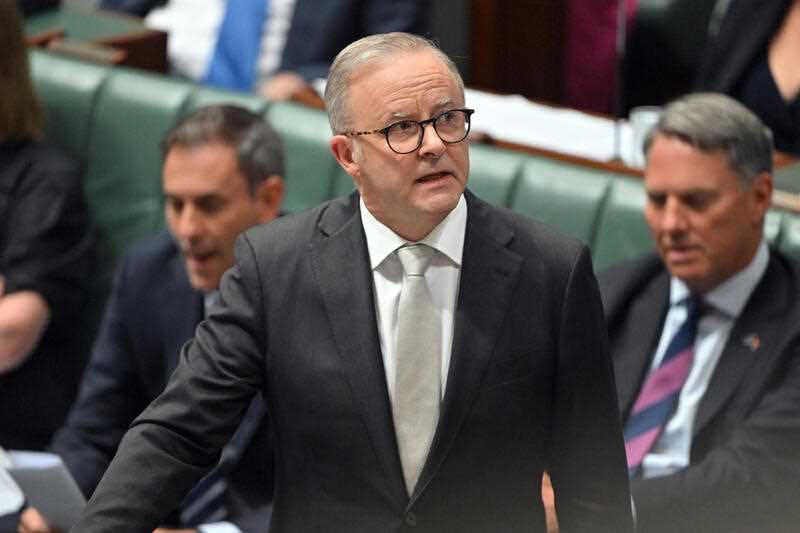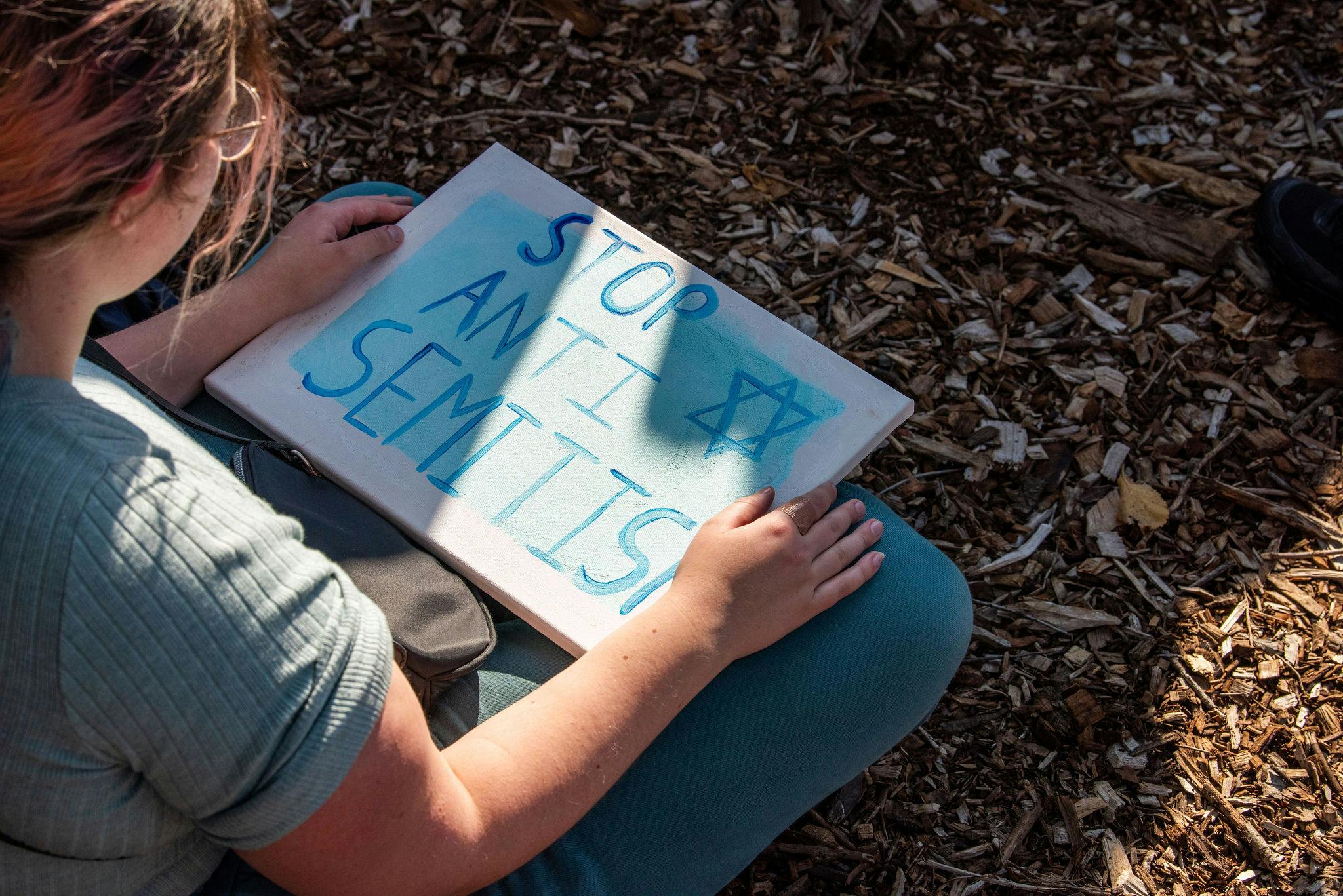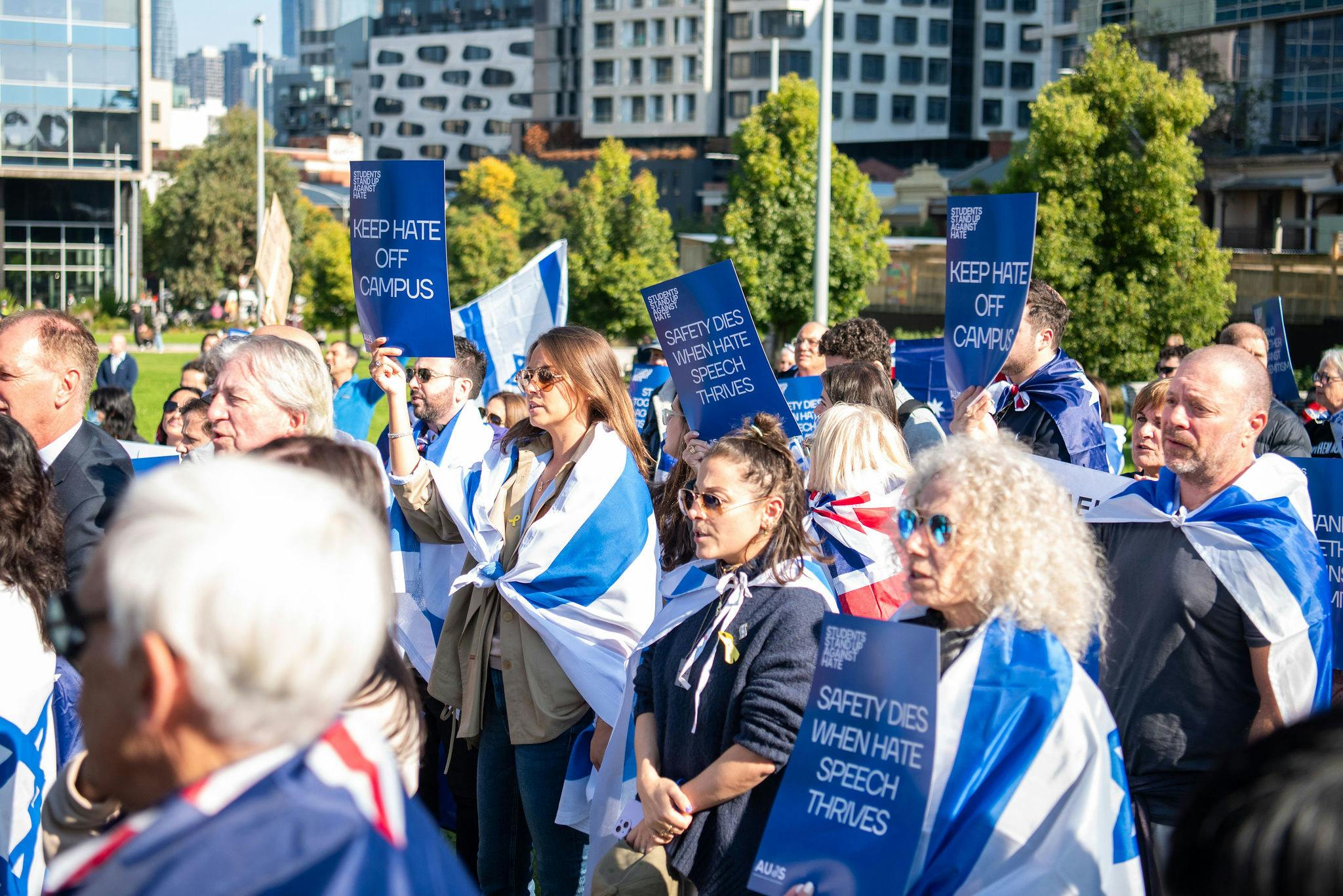Published: 12 February 2024
Last updated: 21 March 2024
Israel is on track to become a pariah state. A politician’s slur in Australia merely reflects public thinking.
Ittay Flescher argued on this site recently that progressive Jews can no longer support the Greens. He and I were Greens members together and I respect him immensely but as he writes from Israel, I wonder if his perspective is based on a blurred memory of context.
Like Ittay, I joined the Greens because of Australia’s treatment of refuges. My membership lapsed at about the time Ittay left for Israel and I carry no candle for the party. But I do not agree that its response on Gaza puts it beyond the pale.
The Greens provided an initial clear response to the October 7 massacre.
On 7 November the Australian Greens issued a statement that began, “One month after the terrorist acts by Hamas into Israel, the Australian Greens mourn the over 1400 innocent Israelis who lost their lives. There is no excuse, no justification and no celebration that can be found in attacks that deliberately targeted and sought to traumatise civilian communities. This was not an act of resistance, nor a legitimate military offensive. This was a terrorist act and we will continue to condemn it as such.”
Since then, the Greens’ positions on Israel and antisemitism have been more controversial, most recently with Jenny Leong’s reference to the “tentacles” of the “Jewish lobby”. Last week all four Victorian Greens MPs were removed from Parliament for holding placards accusing the Victorian government of arming Israel.
It is not difficult to see why progressive politicians sympathise with Palestinians. Four months after Israel’s intervention into Gaza, there are almost 30,000 dead Palestinians and 1.5 million refugees huddled in Rafah are being told to evacuate (where to?) in anticipation of an IDF attack. The world has underestimated how disproportionate Israel’s response to the October 7 terror attack would be.
Also underestimated has been the phenomenal shift in public sentiment. In 1982 about 500 people in Melbourne protested the massacres in Sabra and Shatila refugee camps in Lebanon. Now over 50,000 people march decrying Israel’s slaughter in Gaza.
There is a powerful movement building and the Greens spokespeople are simply reflecting that mood.
Some of that demographic shift is due to immigration of people from Arab countries over the last four decades, but more significant is the generational shift away from Israel and this is a global phenomenon. Millennials, Gen Y and Gen Z are having social media streaming live footage from Gaza direct into their phones and they are furious at what they are witnessing.
Ittay is correct in saying they see the world in binary, ironic given how non-binary of many of them claim to be. Their classification of Israel as a ‘white colonial settler state’ may be flawed but it works. They are forging connections with First Nations groups in Australia and other wealthy countries, and linking up with the global south such as South Africa’s initiative taking Israel to the ICJ.
There is a powerful movement building and the Greens spokespeople are simply reflecting that mood. A Greens politician inadvertently making a slur and then apologising for it gives grounds for complaint, but today’s protester will say ‘look at what is happening in Gaza, where is your priorities?’ An increasing number of people consider the only possible solution is one-state encompassing all religions and ethnicities.
There are progressive Jews, long-time critical supporters of Israel, who are tearfully questioning whether establishing the Israeli state was a wise move. In part because the state commits horrible acts in their names, and rather than providing a haven for Jews, Israel's behaviour creates openings for antisemites to exploit. They are asking how can Israel claim to be a Jewish state when it does not act in accordance with Jewish values?
There are also progressive Jews turning their backs on progressive thinking and retreating to more hardline Zionist positions in the face of the Hamas horrors.
The understanding of today’s pro-Palestine protester may be simplistic. They may not fully understand antisemitism or the relationship of Jewish Australians to Israel. But consider things from their perspective. In 2018 the Basic Law is amended to define Israel as the ‘national home of the Jewish people.’ That state attacks Palestinians in the name of Jews. Mainstream Jewish organisations in Australia use the IHRA definition to call all criticism of Israel antisemitic. A young person, new to the world of politics much less those of the Middle East, gets confused and thinks using the word ‘Zionist’ instead of ‘Jewish’ is acceptable. They see dead and maimed bodies from Israel’s slaughter in Gaza and become furious. Unacceptable comments inevitably end up being made.
If Israel and Palestine are to be rebuilt on foundations of mutual recognition, justice and peace then Israel must rapidly and substantially change its trajectory.
But the bigger picture is that the shift in global attitude is such that Israel is on track to becoming a pariah state. It will survive; North Korea has lasted almost as long as the state of Israel has existed, and Israel’s backers are more powerful. But do you want to support a country that is globally despised, whose actions lead millions to associate Jews with committing genocide rather than being the victims of it?
The South Africa and Ireland experiences teach that if a workable solution is to be found then harsh compromises are required. While continuing to embrace one’s culture and ancestry, desires for revenge and justice often must be put aside to forge a path forwards.
Israel is the preeminent regional military power in the Middle East. It has a functioning state, something the Palestinians are still denied. Since the ascent of Benjamin Netanyahu there has been intentional expansion of West Bank settlements and encroachment into East Jerusalem. Peace initiatives have been hanging in abeyance, and the Palestinian leadership kept divided.
Certainly a ‘decisive shift’ may have been required but the Hamas attack, aside from constituting a war crime, also meant the collapse of Israel’s pro-democracy movement, which was displaying some nascent signs of recognising Palestinian aspirations.
If Israel and Palestine are to be rebuilt on foundations of mutual recognition, justice and peace then Israel must rapidly and substantially change its trajectory. An immediate ceasefire in Gaza and open recognition that the Palestinians also have legitimate rights to self-determination is a starting point.
There are entrenched forces resistant to the kind of change necessary to achieve that solution, and I fear they could be the harbinger of Israel’s self-destruction.




Comments
No comments on this article yet. Be the first to add your thoughts.